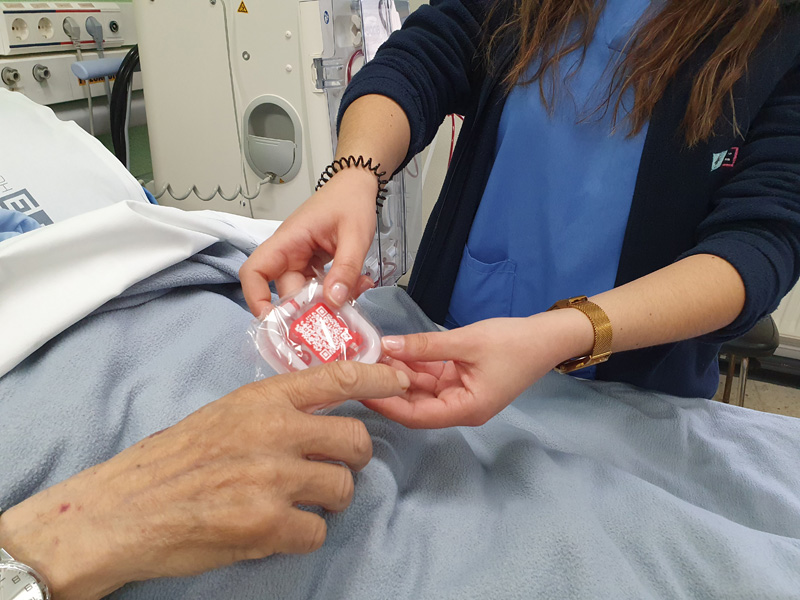
Ribera opts for personalized music therapy in order to humanize care for different groups of patients.
- It has opened a Spotify channel to provide music playlists and a monthly monographic podcast with information, advice and interviews about mental health, breast cancer and diabetes, amongst other current topics.
- In the context of World Health Day, healthcare professionals have got involved in promoting music through this channel, in order to reduce levels of anxiety, pain and emotional changes in their patients.
The Ribera healthcare group has opted for personalized music therapy to humanize care for different groups of patients, such as those that need dialysis or that attend chemotherapy sessions. It is an initiative that Ribera has set up, through a Spotify channel, in the majority of its nine hospitals, and one that will progressively extend to the 60 primary healthcare centers that it manages and its seven clinics in different Spanish provinces.
This is because music stimulates many areas of the brain, such as those responsible for memory, movement and mood, according to a report from the Global Council on Brain Health (GCBH). Music, in addition, it increases neuronal communication, can improve sleep, the level of fatigue and memory, as well as stimulate thinking skills, which help to maintain brain health. The Ribera healthcare group’s music profile on Spotify also includes lists for other types of patients, such as those that want to relax, those that drive to the hospital, that visit a family member who has been admitted, that have problems with insomnia or even those that want music at work or to do a healthy activity. New playlists will be incorporated little by little for pregnant women, for example, for those who are nursing and also for children.
In the context of World Health Day, the group’s healthcare professionals have got involved in promoting music through this channel, explaining to their patients how music helps to reduce levels of anxiety, pain and emotional changes in their patients, as various studies and their daily clinical practices show. “During the toughest waves of this pandemic, with patients admitted for many weeks due to Covid, we have also observed the power of music in terms of improving hemodynamic parameters” , assures Doctor Mari Cruz Martín, head of Intensive Care at The University Hospital of Torrejón.
That is because, as music acts upon our brain it affects, for example, the reduction of cortisol levels, the hormone related to stress, and helps to release endorphins which act as natural painkillers. In addition, due to its relaxing effect, it helps patients that suffer from migraines or headaches and can even, according to a study by the American Society of Hypertension, help to reduce blood pressure.
It is a transversal project, which will be offered in different areas and for patients in their free time or with a variety of pathologies: from mental health problems such as Alzeimer’s to admissions for various interventions, with the aim of reducing stress and anxiety levels. The group is also planning to apply and promote music therapy to patients with brain injuries, severe and chronic pain and those who visit the hospitals frequently and for long periods of time, such as those who are receiving chemotherapy treatment or dialysis.
As well as their music profile, the Ribera healthcare group has started a monthly monographic podcast, Un café a tu salud (A coffee to your health), with information, advice and interviews about different current topics. The two podcasts that have already been published bring healthcare professionals together to discuss two highly topical issues: mental health and breast cancer. The third installment, which will be published at the beginning of May, will approach the important work of primary care professionals with chronic patients such as those who suffer from diabetes.
To access the music playlists click here. And to listen to the health podcasts, follow this link.

Recent Comments